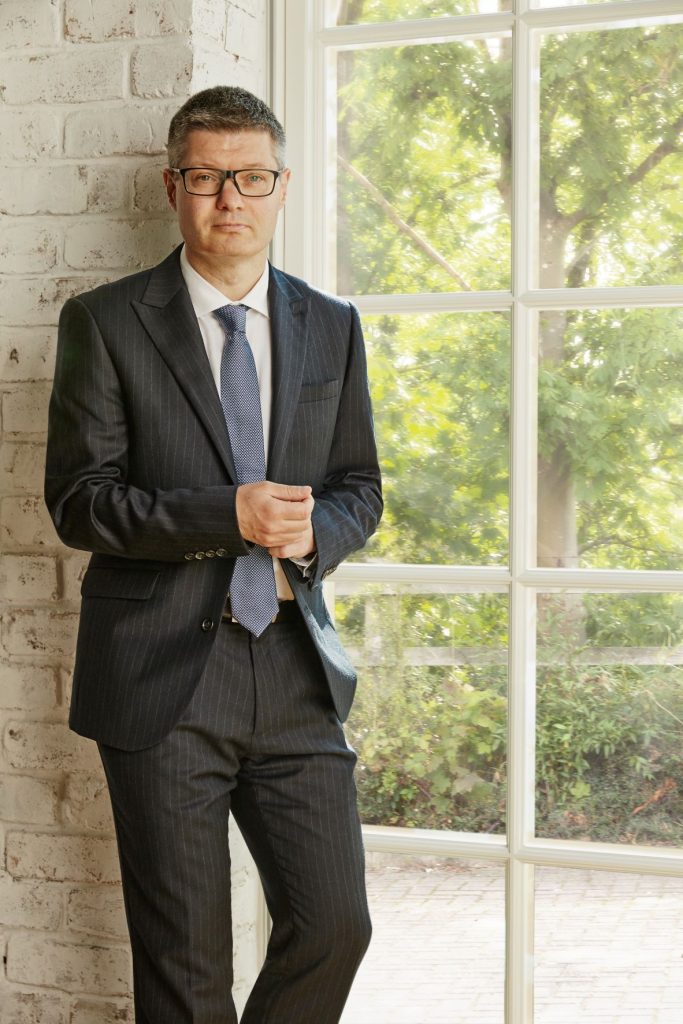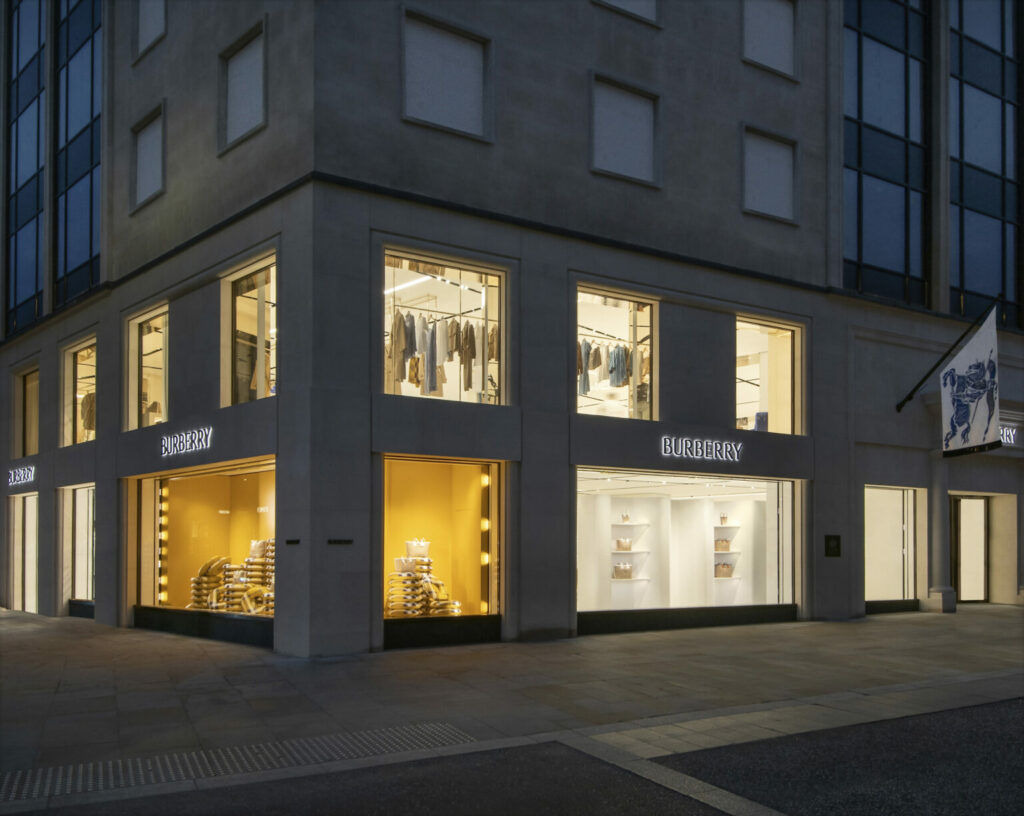Next boss Lord Wolfson is seen as retail’s Nostradamus, with an uncanny ability to predict what will happen not just in retail, but on a broader macroeconomic level. In fact, he was one of the first business people to predict the 2008-09 economic crisis.
However, as the UK faces into the biggest cost-of-living squeeze in more than 30 years, even Wolfson is stumped on what to expect next.
“We’ve never seen anything like this before and we’re not quite sure how it will pan out,” he admits.
“The uncertainties in the year ahead are not ones we’ve had any experience of in the last 20 or 30 years, in terms of the level of inflation in essential goods or inflation in our own products.”
The UK may well have experienced rising inflation and cost prices before, but Wolfson, who has led Next for 20 years, says inflation is “much more widespread” than during even the Credit Crunch.
The Next boss is keen to point out that the current cost-of-living crisis is caused by what he terms a “supply-side” problem.
He explains that disruption to global supply chains, along with what he terms “chronic labour shortages” in many parts of the UK economy, mean that there are simply not enough goods, energy and skilled workers to maintain living standards at the levels we have become used to.
Wolfson believes Government policy can – and should – help alleviate this.
“We are disappointed that the wider Government has done little or nothing within its powers to increase the underlying supply of goods, energy and skilled workers.
“It is important to recognise that Government interventions to ‘pay for’ inflationary increases does nothing to increase the underlying supply of goods and services.”
Wolfson says there is much the Government can do to increase supply: “It can reverse the self-defeating barriers it has placed on overseas workers supporting our economy and accelerate, simplify and reform the planning process to increase the supply of desperately needed housing.
“We hope that the Government will use its powers wisely and do all it can to tackle the UK’s many supply side constraints. I’m yet to see any evidence that they will do.”
Spiralling freight costs to ease in 9 to 12 months
Wolfson says that in terms of the cost of its own goods, rising freight cost is the biggest factor pushing up prices.
He explains that retailers have exacerbated the supply chain crisis by ordering higher volumes of stock.
“As the world restocked over the last six months there’s been a squeeze on manufacturing capacity worldwide which has pushed prices up. All of us have ordered more products to account for the longer time it takes to get here. That’s created a squeeze on capacity,” he says.
However, he expects the situation to improve by early 2023. “In the best case scenario we’ll see an easing of pressure in the next 9 to 12 months.”
Despite Wolfson’s warnings, Next had a better year than expected last year. He revealed yesterday that pre-tax profit rose 10% on pre-pandemic levels to £823 million, which is up a whopping 140% against last year. Full price brand sales also jumped 12.8% on 2019/20 figures.
Wolfson says this is largely because of “the strength of the underlying consumer” and the level of pent-up demand after lockdown.
Pre-pandemic behaviour returns
Much has been made about the pandemic transforming consumer behaviour, however, Wolfson says his customer has returned to their old shopping habits since restrictions have eased.

There has been a return to more formal dressing and a notable reduction in home and “very casual” clothing sales at Next.
“We’re seeing a return to pre-pandemic habits across the board. The participation of different categories is going back to where it was before the pandemic. I think it’s a straight reversal of trends,” he says.
“If people are sitting at home and not going to work they’re not going to buy a suit or a blouse but the if they’re going work they’ll buy a suit.”
Wolfson also highlights a trend towards “more investment dressing”, with shoppers spending more on outfits.
“We are seeing consumer preferences moving slightly up our price architecture. They’re buying fewer, cheaper items and more investment purchases.
The Next boss did acknowledge that the growth of working from home had stimulated more sales during the week for the retailer.
“More business is moving into the week from the weekends. I think that’s all about working from home and people being able to manage their time across seven days of the week rather than doing a 9 to 5 and having their leisure time at the weekend. We’re not seeing as big a weekend peak as we would have done pre-pandemic.”
READ MORE: Retail reacts: Spring Statement fails to avert cost-of-living crisis
Store sales improve
Despite the headwinds experienced so far in 2022, Wolfson admits that Next’s performance is “slightly ahead” of what it expected in January.
“I wouldn’t want you to think that the UK performance is strong,” he says. “What we’re seeing so far is slightly better than anticipated but you shouldn’t read too much into that as cost-of-living pressures are likely to increase throughout the year.”
Despite the proclamations, Wolfson says he is “less pessimistic” about the performance of its retail stores, although conversely he is not quite as optimistic about its online business, over the year ahead.

The retailer expects shops to contribute an additional £78 million sales in its current year, whilst online is expected to make £168 million fewer sales, although the vast majority of this shortfall comes from the closure of Next’s Russian and Ukrainian websites.
Wolfson says Next stores have benefited from other retailers disappearing from the high street. “We underestimate the effect of other people leaving the high street on our shops. There are a lot of names that were there three years ago that aren’t there today,” he says.
However, do not expect Next to open any further stores. In fact, Next expects to reduce retail space by around 2% over the year ahead due to the closure of around 15 stores.
The retailer plans to open two department store format stores this year, one in Watford’s Atria centre next month, and the other in Manchester’s Trafford centre due to open by the end of the year.
However, Wolfson says he will not be investing heavily into stores. “You shouldn’t expect a radical change in our store portfolio. Because retail sales are still moving backwards there just isn’t the money to invest in refitting the whole shop.”
He predicts this will be a trend across retail: “What you’ll see in general is less investment in physical retail. It’s much harder to justify investing the same amount of capital in moving or changing shops.”
However, Next is looking to add other products and concessions to its stores.
“We’re looking for opportunities to add other products into our shops where we’ve got surplus space,” he says.
Next’s Total Platform business, which offers third-party brands access to the retailer’s online logistics and back-end systems, gives it the opportunity to team up with brands and strike concession agreements, says Wolfson.
Next launched its first Gap concession in it’s Oxford Street store this month and Wolfson says it is actively looking for more partnerships of the same ilk.
The cost-of-living crisis may create uncertain times that even has Wolfson scratching his head, but he’s clearly not sitting on his laurels. Instead, he continues to find more ways to get customers shopping with Next. Some things remain predictable as ever.
Click here to sign up to Retail Gazette‘s free daily email newsletter


















